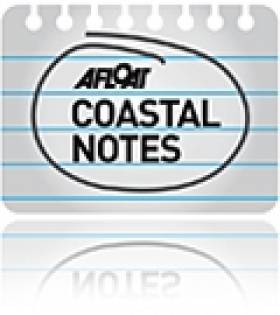Displaying items by tag: Rush South
Cork Beach Closures Continue as E.coli Results Awaited
#COASTAL NOTES - Cork County Council has announced it will be at least two more days before it knows if its bathing ban at seven beaches can be lifted, according to RTÉ News.
As previously reported on Afloat.ie, the seven coastal beaches - including blue flag strands at Garretstown, Redbarn and Garryvoe - have been closed to swimming over concerns at elevated E.coli levels in the water, resuling from water runoff after the recent heavy rainfall in the county.
Notices were first posted by the council last Friday, and the latest water samples were collected at the affected beaches yesterday.
Youghal is the worst affected by the outbreak, with three beaches closed.
Meanwhile, a popular east coast beach has been reopened after a similar E.coli scare.
The Irish Independent reports that Rush South in north Co Dublin was closed to bathers after bacterial contamination was detected over the August bank holiday weekend.
Levels of E.coli recorded in the water were at 2,143, above the EU mandatory level of 2,000, but samples taken since have been given the all-clear.
A spokesperson for Fingal County Council described it as "a once-off pollution incident that will not have any ongoing impact on bathing at Rush South".





























































